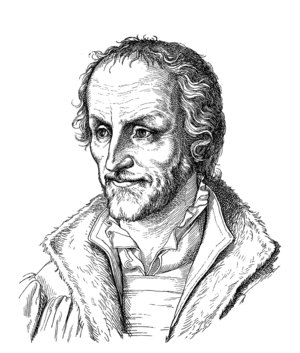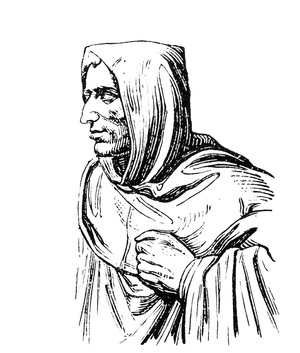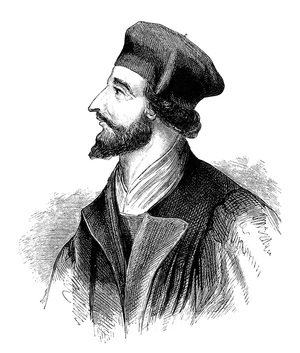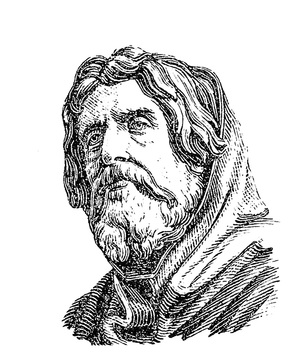
In today’s text (Romans 8:12-17), Paul tells the Rome church they are indebted (under obligation) to God the Spirit, but as children of God. In this text, he implicitly exhorts the church to apply what he’s written in 8:1-11. A good summary of that text is 8:3,4 . . .
“For God has done what the law, weakened by the flesh, could not do: by sending his own Son in the likeness of sinful flesh, and as a sin offering so that the just requirement of the law might be fulfilled in us, who walk not according to the flesh but according to the Spirit” (8:3,4).
Now, the implicit exhortations which follow from that summary . . .
“So then, brothers and sisters, we are debtors, not to the flesh, to live according to the flesh –“ (8:12).
Paul tells the Rome church and us (including himself) that we are “debtors” but not to the “flesh” (sinful nature or the law of sin in our members). We’re no longer under obligation to the flesh, because God has acted by sending his Son (8:3,4). Therefore, our “indebtedness” is now to God the Spirit, who indwells us.
“for if you live according to the flesh, you will die; but if by the Spirit you put to death the deeds of the body, you will live” (8:13).
Here’s the reason why we’re not obligated to the sin nature: if we live in conformity with its desires, we die. In short, our sin nature does us no good. It leaves us separated from knowing God now, and eternally separated from him at the judgment.
Paul isn’t warning the believers we will die, since he’s already assured us, “There is therefore no condemnation for those who are in Christ Jesus” (8:1). He’s warning us to stay away from what “kills” unbelievers.
But, “if by the Spirit you put to death the deeds of the body, you will live.”
“ . . . the deeds of the body.” Paul sees the body as the place where the law of sin operates, as he’s already written . . .
“ . . . but I see another law at work in the members of my body, waging war against the law of my mind and making me a prisoner of the law of sin at work within my members” (7:23).
“We know that our old self was crucified with him so that the body of sin might be destroyed, and we might no longer be enslaved to sin” (6:6).
Until that destruction we are to “put to death the deeds of the body” so we might live. And this we are to do “by the Spirit”.
“ . . . put to death” comes from the Greek thanatao. Literally, it means “kill someone.” Figuratively, it means “put a stop to”—in this case, the body’s sin-nature deeds. We shouldn’t skim Paul’s language-choice—a violent word, implying the warfare-against-sin in which we are caught up. And the present tense means Paul wants his readers to keep on “killing” the body’s sin-nature deeds.
Commentator Leon Morris writes, “Such acts are the object of decisive and hostile actions as far as the believer is concerned. There is to be no life in the deeds in question. They are not living options. And this is to take place through an action in the believer, though not an unaided action, for the mortification is to be done ‘by the Spirit’. It is the energy of the divine Spirit, not the energy of the flesh, that enables the believer to put the body’s deeds to death” (The Epistle to the Romans, p. 312).
Paul now explains why all genuine believers will fight sin to the death and live . . .
“For all who are led by the Spirit of God are children of God. For you did not receive a spirit of slavery to fall back into fear, but you have received a Spirit of adoption. When we cry, “Abba! Father!” it is that very Spirit bearing witness with our spirit that we are children of God, and if children, then heirs, heirs of God and joint heirs with Christ — if, in fact, we suffer with him so that we may also be glorified with him “ (8:14-17).
All true Christians will “kill” sin because “ . . . all who are led by the Spirit are children of God”. To be “led by the Spirit” is to be guided into fights against sin. Those “led by the Spirit” are “children of God”. They have a “family-like” relationship with God, and he with them.
Thus, they will live because they are God’s children! They are not slaves “to fall back into fear.” They are “children”, who belong no matter what.
We, of course, are not naturally God’s children. (Here Paul opposes the popular cultural thought that we’re all children of God.) We’re God’s children by “a Spirit of adoption”. That means we have been given rights and privileges not naturally ours. We’re admitted into a heavenly family to which we have no rights of our own.
And while “adoption” is a legal proceeding, Paul makes it very personal. We have received a “Spirit of adoption”. He is given to indwell us, to live inside us. And it is by him that we cry, “Abba! Father”. “Abba” is an Aramaic term for father, meaning something close to our “papa” or “daddy”, while retaining proper respect and honor.
This is intimacy with God as our Father that we sense in our spirit.
This leads to a “legal” standing that we “adopted children of God” enjoy—“heirs, heirs of God and joint heirs with Christ . . . “ In the Old Testament, the children of Israel were heirs of the land. Later, that promised land came to be understood in connection with the Messiah. Paul identifies us as “joint heirs with Christ”. Thus, we inherit what the Messiah inherits—not just eastern Mediterranean land, but the new creation over which he will reign and all eternal blessings belonging to it. As adopted children of God, all this is ours with Christ.
But there’s a condition–“if, in fact, we suffer with him so that we may also be glorified with him.” What kind of suffering might Paul have in mind? In the immediate context (8:1-17), it’s the suffering of “killing” sin. It’s easier to “go with the flow”, to do what feels right. But indwelling sin (what Paul calls “the law of sin”) remains in us. Empowered by the Spirit, we must resist it and put it to death when it tempts. Because of this, following Christ brings with it its own afflictions.
As Paul continues (8:18-39), it becomes obvious Paul is broadening out suffering to include any kind. Sickness, pain, persecution, poverty may come. With it will come a severe faith-test. Sin will raise its siren call to “curse God and die”. It must be killed. If we are to be glorified with Christ, we must suffer with him.
* * *
You and I, believers in Christ, have a debt, an obligation. But a good one. We’re obligated to put the deeds of our sin-indwelt bodies to death. This might sound silly coming from the old preacher. Isn’t it mostly the young who endure temptation? I guess I used to think that, just as I used to think I had really grown holier. Then I realized I had just grown older. Temptations to sin may have changed, but they still confront me.
Anyway, I’ve said our obligate to “kill” the deeds of our sin-indwelt bodies is a good one. That’s because we’re obligated as adopted-by-the-Spirit children of God. We’re obligated as sinners who now call God “Father” and sense in our spirit that God is our Father. We’re obligated as children who will increasingly learn to live in accord with the Spirit who indwells us. And we’re obligated as children who are joint-heirs with Christ himself, glory awaiting.
I conclude with two thoughts. One, no matter what happens we belong. We’ll not be kicked out of the family. And, two, we’re not little defenseless children cowering at the attacks of sin. We’re children of the King, armed with the Spirit, destined to win. We’re on the offensive against sin!






Recent Comments